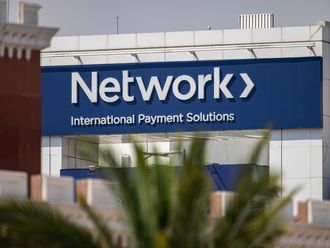Dubai: The introduction of the Direct Debit System (DDS) is expected to boost transparency, reduce paperwork, nearly eliminate cheques and save time as well as boost operational efficiency of the sector in serving millions of retail customers in the UAE.
A direct debit is a safe and convenient method of making payments and is ideally suited for regular payments with fixed or variable amounts such as utility bills, insurance payments, mortgage or loan repayments and subscriptions.
The system, which has been in operation in developed economies, is new in the Gulf Cooperation Council region.
As per the system, the customer or payer who has purchased goods or services from a service provider or an originator, needs to sign a Direct Debit Authority (DDA) document with his bank specifying the details of the services purchased and the agreed payment amount and the duration — monthly, quarterly and half-yearly.
The DDA requires the payer to pre-authorise the debiting of the amounts which will be notified to the payer in advance as per agreed means.
Standing instructions
This will then be forwarded to the service provider who will the instruct his bank to collect the amount regularly from the payer’s bank account.
Once the payer has returned the instruction to the Originator, the payer takes no further action until such time the debit requests flow in from the Originator through the bank.
“The service provider and the payer’s bank will arrange payments for the payer for the amounts as deemed to be paid by the payer to the service provider,” the Central Bank directives say.
The DDS is hosted by the UAE Central Bank and will monitor direct bank-to-bank payments. This should lead to improved customer service by the banks/companies corporations/government departments collecting/receiving the payments.
More than 29 million cheques were issued in the UAE last year, worth nearly Dh1.17 trillion, of which 1.14 million cheques, worth Dh46.85 billion, or 4.99 per cent of the total, were either returned or bounced. The DDS will reduce this drastically within the first few months of the operation and gradually eliminate the use in retail payment system.
Although the extent of check bouncing incidents has reduced drastically, it remains a problem for both the bankers as well as the law enforcing agencies who had to deal with a large number of bounced cheques between 2009-11 — as a fallout of the global financial crisis.
The DDS will reduce these cases and enhance operational efficiency of the banking system. A large number of payment-related issues could be resolved by the banks themselves to protect their customers — instead of beneficiaries putting them behind bars.
The move is part of the UAE Central Bank’s plans to “establish a more convenient retail banking system that will create more stable and progressive economic development,” said a recent Central Bank directive.
“The Federal Government Strategy requires adopting technology to enhance electronic systems and improve services to banking customers in the UAE. In this regard, Central Bank of the UAE continually strives to improve the efficiency of the payment systems in the UAE,” said a spokesperson.
Decriminalisation
The move is also part of the government’s initiative to gradually decriminalise the failure of payment obligations and develop a credit bureau that will improve transparency.
It might spare defaulters from being criminally charged. “There cannot be a police case in case of return of installment. But the bank can take the matter to the court to file a civil case. Usually banks want to settle the outstanding amicably with the customer,” said Sheikh Abdul Karim, Senior Vice President and Head of Operations Control Division at Sharjah Islamic Bank.
“But for sure, since this will be recorded with the Central Bank, the customer’s credit rating will be affected. Hence, customer will be more careful to fail in his obligation to pay.”
Under the new system, banks must settle indemnity claims under or pursuant to the DDS within five working days.
The development comes at a time when the UAE’s banking sector is looking up for growth after four years of slowdown.
Standard & Poor’s credit analyst Timucin Engin, said: “In the UAE, which has seen a less pronounced rebound in growth, we envisage a slower pick-up in lending. Yet, loan losses are gradually declining at banks in these countries because they cleaned up their balance sheets between 2008 and 2012.”











